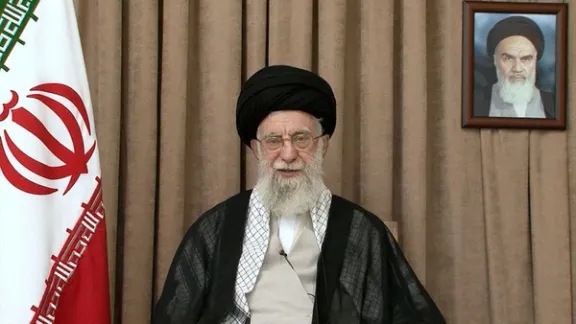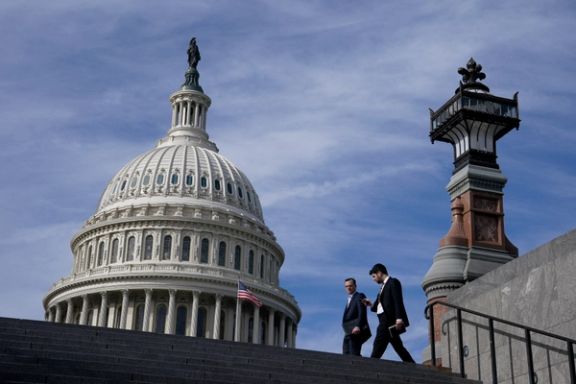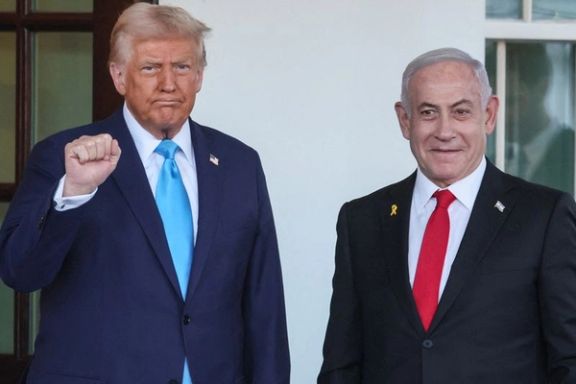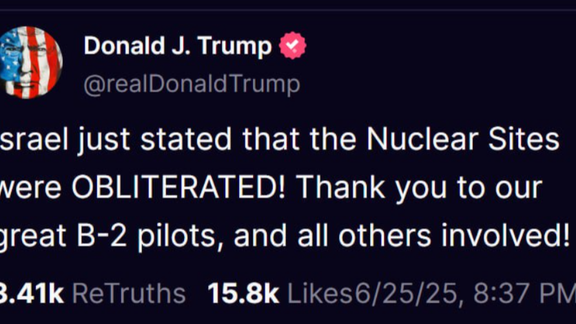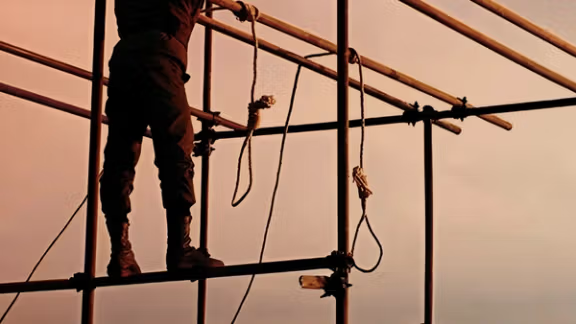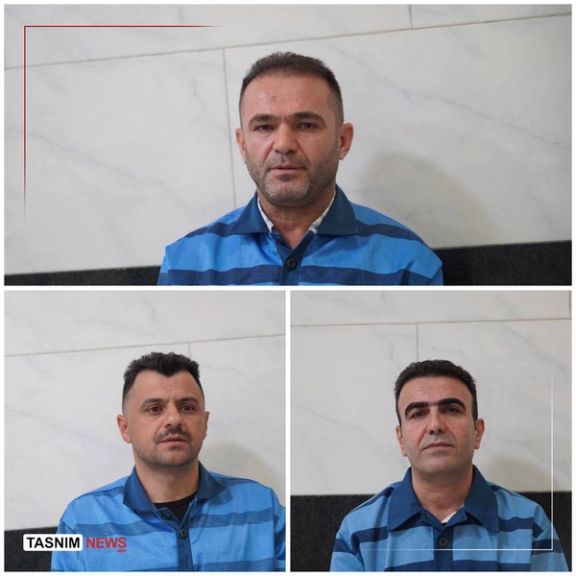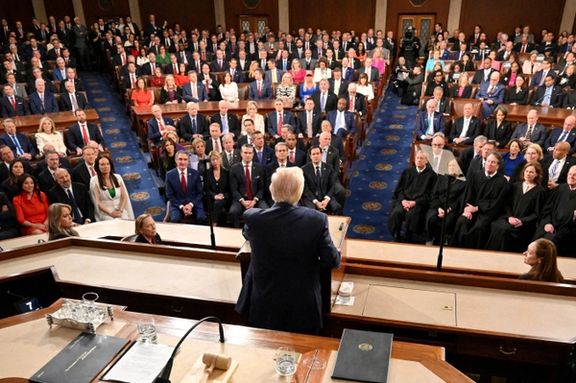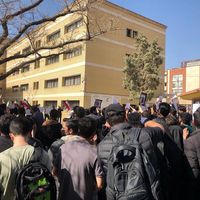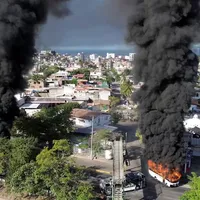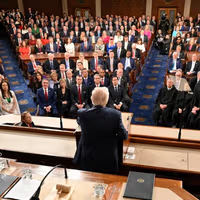“Iran just had a war. They fought it bravely,” Trump said Wednesday on the sidelines of the NATO summit.
“I’m not giving up (on the maximum pressure policy). I could stop their oil business if I wanted. (But) I don’t want to do that," he said when asked if he is easing sanctions on Iran.
"They’re going to need money to put that country back to shape. We want to see that happen. We’re not taking over the oil. We could have. But putting that country back into shape desperately needs money."
The remarks mark a notable shift in tone. Just weeks earlier, in early May, Trump had threatened to impose immediate secondary sanctions on any country buying “even small amounts of oil or petrochemicals from Iran.”
That warning was part of his administration’s revived maximum pressure campaign, reintroduced this February after a pause under the Biden administration.
On Tuesday, Trump appeared to soften his stance, posting on Truth Social: “China can now continue to purchase Oil from Iran.”
The post drew immediate speculation about a possible rollback of sanctions.
However, the Wall Street Journal cited a senior White House official as saying Trump was “simply calling attention to the fact that, because of his decisive actions to obliterate Iran’s nuclear facilities and broker a ceasefire between Israel and Iran, the Strait of Hormuz will not be impacted, which would have been devastating for China.”
The official was quoted as saying that US sanctions on countries importing Iranian oil remain fully in effect.
In his Wednesday remarks, Trump did not clarify whether he plans to formally issue a sanctions waiver or simply return to what critics described as lax enforcement of US sanctions during the Biden era.
'Uncanny ability'
Trump's Mideast envoy for talks with Iran which are due to resume next week said the move is a sign of Trump's diplomatic prowess.
"It was a signal from the President, you know, he's got this uncanny ability to take the temperature of how people are feeling about certain things," he told Fox News.
"This was a signal to the Chinese that we want to work with you, that we're not interested in hurting your economy, we're interested in in working together with you in unison, and hopefully that becomes a signal to the Iranians," he added.
During Trump’s first term, strict sanctions enforcement had nearly eliminated Iran’s legal oil exports, bringing them down to 200,000 barrels per day. Under the Biden administration, the enforcement of sanctions eased, and exports to China surged — peaking at 1.7 million barrels per day in early 2025.
China is Iran’s primary oil customer, reportedly buying around 90 percent of its exports, according to Reuters.
Iranian crude is often shipped in shadow fleets that mask the origin of the oil before it arrives at China’s independent “teapot” refineries. These facilities frequently pay in Chinese yuan, bypassing the US dollar-based global financial system.

